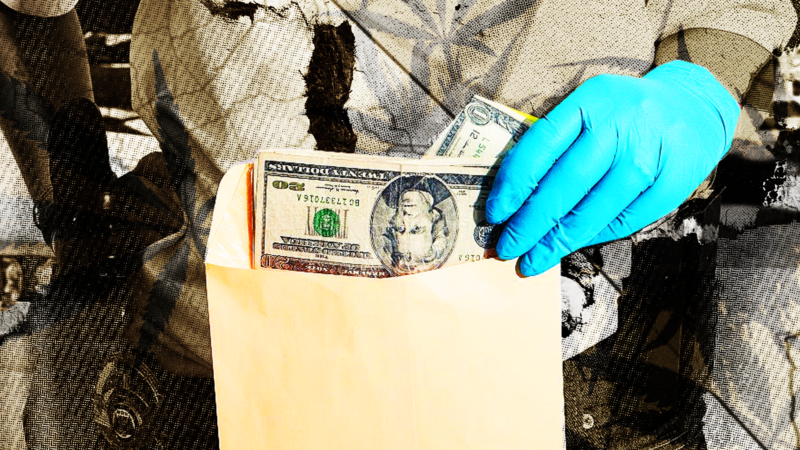Oklahoma Gov. Kevin Stitt Says Civil Asset Forfeiture 'Isn't Fair' and Calls for Reforms
"It's crazy to me that somebody can be pulled over and have their cash and truck taken for an alleged crime, get acquitted of that crime, but they still never get their property back," Stitt said.

Republican Oklahoma Gov. Kevin Stitt called for reforms to the state's civil asset forfeiture laws in his State of the State address Monday.
"We need to address civil asset forfeiture," Stitt said. "It's crazy to me that somebody can be pulled over and have their cash and truck taken for an alleged crime, get acquitted of that crime, but they still never get their property back."
"That isn't fair, and we need to make sure it isn't happening anywhere in Oklahoma," Stitt continued.
The comments are notable because Oklahoma is part of a shrinking group of states that has yet to overhaul their forfeiture statutes in the face of bipartisan criticisms.
Under civil asset forfeiture laws, police can seize property they suspect of being connected to criminal activity, even if the owner is never charged with a crime.
Law enforcement groups say civil forfeiture is a crucial tool to cripple drug trafficking and other organized crime by targeting criminals' cash and assets.
However, civil rights groups say the practice is tilted against property owners and creates perverse profit incentives for police. Investigations have repeatedly uncovered cases across the county where police officers accused innocent people of being drug traffickers for carrying large amounts of cash—which is perfectly legal—and then seized their money. Property owners are then forced to go to court, where they bear the burden of proof to demonstrate their innocence.
For example, in 2021, NBC News reported on the case of two Vietnamese men who had over $130,000 in cash seized after they were pulled over by Oklahoma sheriff's deputies. The men were let free without criminal charges or a receipt for their seized cash.
"Now I have to prove I'm innocent, and they are the ones who illegally took my money and basically stole some of my money, too," one of the men told NBC.
In another high-profile case, a Burmese refugee named Eh Wah was driving across the country in 2016. Eh Wah was the manager of a Christian band that was raising money for a Burmese orphanage. When deputies from the Muskogee County Sheriff's pulled over the band's tour van, they found $53,000 in cash that the band had raised.
Despite not one iota of drugs being found in Eh Wah's van, the deputies seized the money, claiming it was drug proceeds. The sheriff's office released the money back to Eh Wah two months later, the same day that The Washington Post published a story on his case.
Over the last decade, 37 states have passed some form of civil asset forfeiture reform because of stories like these, and four states now only allow forfeiture after a criminal conviction based on proof beyond a reasonable doubt.
The Institute for Justice, a libertarian-leaning public-interest law firm that represented Eh Wah and has challenged forfeiture laws in several states, gave Oklahoma's asset forfeiture laws a "D-" grade in its latest survey, citing the state's low burden of proof to forfeit property, lack of protections for innocent owners, and strong financial incentive for seizures.
"Governor Stitt was right. No Oklahoman should lose their property through forfeiture unless they are convicted of a crime. Forfeiture should only be available as punishment for a crime in criminal court," Institute for Justice senior legislative counsel Lee McGrath said in a press release. "Oklahoma prosecutors should use forfeiture to confiscate the fruit of crime, but their litigation should be done as part of a criminal prosecution—not separate and crazy civil litigation where cars and cash are named as the defendants."


Show Comments (21)